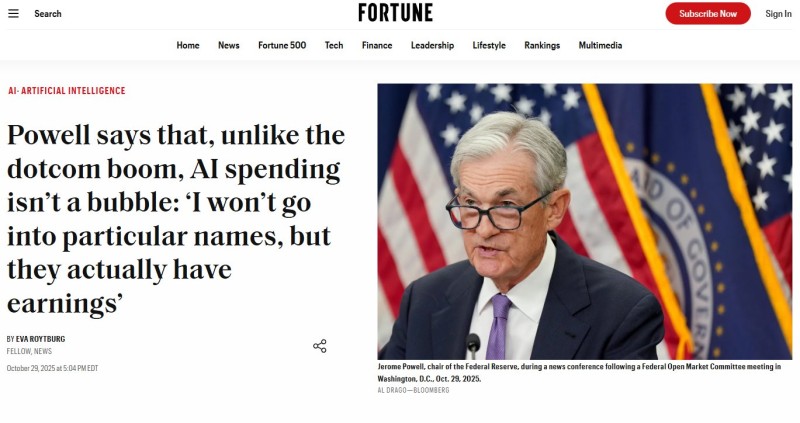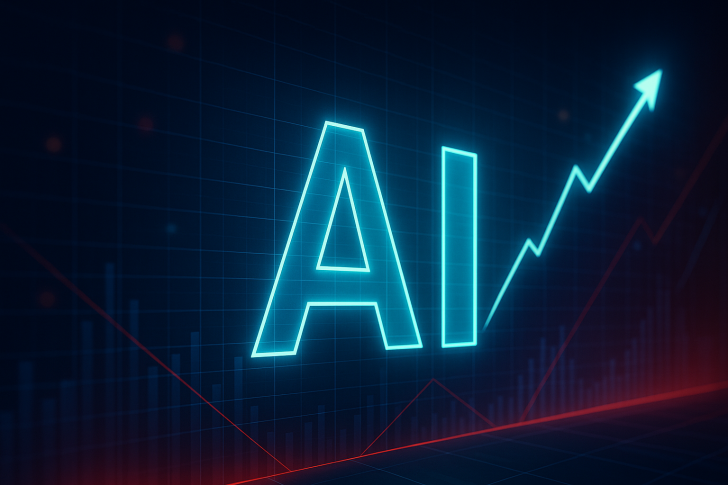At a press conference after the Federal Reserve's October 29, 2025 meeting, Chair Jerome Powell made a clear distinction between today's artificial intelligence boom and the dotcom bubble of the early 2000s. His comments, reported by Fortune, gained traction online when his key point was highlighted: "AI companies actually have earnings." The Fed Chair's remarks suggest a significant shift in how central bankers view tech-driven growth in the modern economy.
Powell Dismisses the "AI Bubble" Narrative
When asked by reporters, Powell was direct. "I won't go into particular names," he said, "but these companies actually have earnings." The Chubby trader's post highlighted this statement, which quickly resonated across financial circles. Powell stressed that today's AI leaders are fundamentally different from the internet startups of two decades ago — they're profitable, generate real cash flow, and produce measurable economic results.

He characterized the AI boom as a long-term productivity shift rather than a speculative frenzy. According to Powell, AI-related capital spending on data centers and chip manufacturing is transforming U.S. infrastructure and boosting productivity and investment efficiency.
From Data Centers to Power Grids: Real-World Impact
Powell's assessment reflects what's actually happening across the economy. AI demand has triggered a wave of data center construction, energy grid expansion, and chip innovation. Companies like Nvidia, Microsoft, and Amazon are posting strong profits directly linked to AI infrastructure and software. This confirms Powell's argument that the growth isn't speculative. Economists point out that AI spending creates ripple effects throughout the economy: semiconductor supply chains, utility modernization, logistics optimization. Unlike the dotcom era when valuations soared without real adoption, AI investment delivers tangible results — new hardware, improved systems, and concrete productivity gains.
Economists Support Powell's Perspective
Powell isn't alone in his view. Economists from Goldman Sachs and JPMorgan agree that AI is generating genuine productivity improvements: Goldman estimates AI could add up to $7 trillion to global GDP over the next decade, JPMorgan sees sustained corporate earnings growth, both firms cite rising business productivity and reinvestment as evidence of real, sustainable expansion. Their analysis suggests Powell's position highlights a structural transformation similar to electrification or the computer revolution — not just another financial cycle.
A New Kind of Economic Growth
Powell's statement represents a notable shift from the typical central banker caution around tech booms. By recognizing AI's profitability and measurable productivity impact, the Fed appears to see the technology as a long-term stabilizing force. Powell suggested that rather than creating asset bubbles, AI could actually help counter demographic challenges and inflationary pressures by improving labor efficiency and capital output. That makes the current AI wave more than a market story — it's potentially a macroeconomic turning point.
 Peter Smith
Peter Smith

 Peter Smith
Peter Smith


